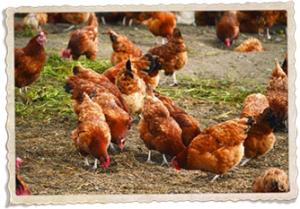When you first start raising chickens, you may notice that the eggs you receive from your hens aren’t quite as uniform as the ones you’re used to buying in a grocery store. That’s because commercially-sold eggs are inspected and sorted before they’re shipped to ensure all the eggs in a carton appear roughly the same. Some of your eggs may have funny shapes, or wrinkles in their shells, or unusual color patterns you’ve never seen before.
Occasionally, you may even notice spots of blood in your hens’ eggs. Here is what that could mean:
First off, don’t panic
This can be a little startling if you’re not prepared for it, but blood spots in eggs are typically not a serious cause for concern. Eggs—even unfertilized ones—contain a network of blood vessels that support embryos during incubation. If a hen is jostled or startled during the process of laying an egg, one or more of these vessels may burst and leave visible blood spots in the yolk or egg white.
Blood spots are not a sign of fertilization
These blood spots do not mean the egg has been fertilized. Rather, they are usually a harmless byproduct of the hens’ environmental conditions. Their presence in eggs can be influenced by a number of different factors, including the hen’s genetics and dietary nutrition. When hens are exposed to too much light at night it can make them more prone to laying bloody eggs as well.
Eggs with blood spots are perfectly safe to eat
Eggs with blood spots in them might not be as aesthetically pleasing as you would like, but they are perfectly safe to eat. If their appearance really bothers you, the blood spots can be easily removed with a knife or fork before you cook the eggs. Chances are, however, a little blood spot won’t have a noticeable effect on the flavor of an egg.
To learn about your chickens’ eggs or how to care for backyard chickens, contact Chickens for Backyards today.

